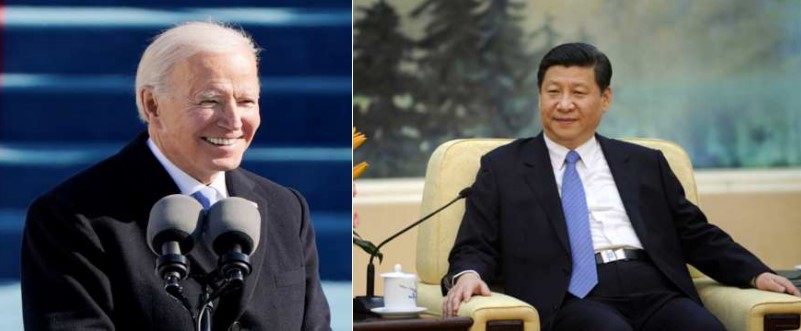
What drives China-US game: Washington believes being poor is Chinese people’s fate
Hu Xijin
Former Australian prime minister Paul Keating recently said that China’s “great problem” is that “it [China] is now a state as large as the United States, and with the potential of being much larger – an unforgivable sin for American triumphalists.”
The former Australian head of state made such a statement when accusing the incumbent Australian government of wantonly leading Australia-China relations into a strategic dead end. He said that China was not forcibly incorporating countries into a “grand union” or exporting a universal ideology. Nor did China impose nuclear threats, said Keating. But he believed that, “China’s rise is simply not in the American playbook – its very existence and at this scale is an affront to America’s notion of itself as the exceptional state – the proselytizer of divine providence.”
I have to say that Keating has a precise analysis of US’ thinking. This also tells us that as long as China keeps its development momentum, the US will not “forgive” it whatsoever.
China is encountering strategic containment and suppression from the US at the current stage. I’d like to emphasize that no matter how it happened, it is the collective fate of the Chinese people. We must overcome it in a collective spirit.
Who pushed forward China’s rise? Who provided the fundamental driving force of this trend? As far as I see, this is the dream of several generations with noble aspirations and the Communist Party of China united the Chinese people. The Chinese people as a whole eventually turned the dream into a historic trend.
In the past two or three decades, Chinese people became aware of their rights and their desire to pursue a better life was fully awakened. Almost all the Chinese people work hard to achieve these goals.
Now there are color TVs, refrigerators, and washing machines in almost every household in China. The country’s GDP became the sixth largest in the world by 2000, surpassing Italy. Then the Chinese were able to afford private cars and houses with property rights. And in another decade, China’s GDP surpassed Japan’s to become the second largest economy in the world. Yet at that time, it was still far from the total GDP of the US.
The Chinese people then began to buy better cars, as well as improve the housing and environments of their neighborhoods, towns, and cities. Moreover, they started to strengthen ecological protection, develop tourism, gradually build a social welfare system, and digitize their life. As a result, China’s GDP today is more than two-thirds of that of the US.
But are we, the Chinese, satisfied? Not at all. Modernization in our country needs to be refined continuously. The serious income disparity between regions and different groups needs to be replaced by common prosperity. Those who get rich first need to bring others along. The welfare system in China needs to be further improved so that the next generation must live better off than the previous one. Food needs to be safer. The difficulty of seeing a doctor needs to be fundamentally solved. Every citizen’s retirement needs to be secured. Accidents during production should be further reduced. When we can take all these things up to another level, China’s total GDP will surpass that of the US and become the world’s No.1.
No one can stop the Chinese people from collectively pushing their country to become the world’s top economy as history progresses. Even though the Chinese government certainly has not planned the timetable and roadmap to become the world’s No.1, this is a “people’s war.” It will be as vast and mighty as a big river. It will be an unstoppable tide.
At a time when the traditional geopolitical mentality is far from receding, the Chinese have already started a national movement for common prosperity with speed and on a grand scale. Moreover, we have shown our strong ability to turn that pursuit into reality.
This is China’s “unforgivable sin” to the US, as Keating put it. Yet China is simply bettering itself.
What can we do? Reason with the US and convince it to chill? Obviously, doing so is useless. The only way that can make the US “forgive” China is to stop developing. This means we will stay in the No.2 position forever. It means Chinese people will have to stop the effort to further improve their living standards. We are all deprived of the natural human rights to pursue a better life. Moreover, according to the law of social development, once we stop moving forward, chaos could emerge. If this were to happen, we could not maintain our current moderately prosperous way of life.
This is the nature of the China-US game. The truth is, even if China’s GDP surpasses that of the US one day, our per capita wealth will be far less than that of the US, Europe and the entire Western world. But even so, Washington will not allow it. They believe that being poor is Chinese people’s collective fate. The poverty in China is an indispensable prerequisite for the security of the US and the world.
That being said, playing the game and continuing this struggle has become the only choice for all Chinese people. As I often say, all Chinese are on the same boat in this struggle. We are not only responding to challenges for the future of our country, we are also fighting for the future for ourselves and our children. We must unite and use the powerful reality that will continue to form a force for the US to abandon its ambitions to crush China. This will force them to believe: Accepting the possibility that China, which has a population four times the US population, will exceed it in terms of total economic prowess. They must accept that coexisting with China peacefully will be their best choice.
The writer is editor-in-chief of the Global Times.
